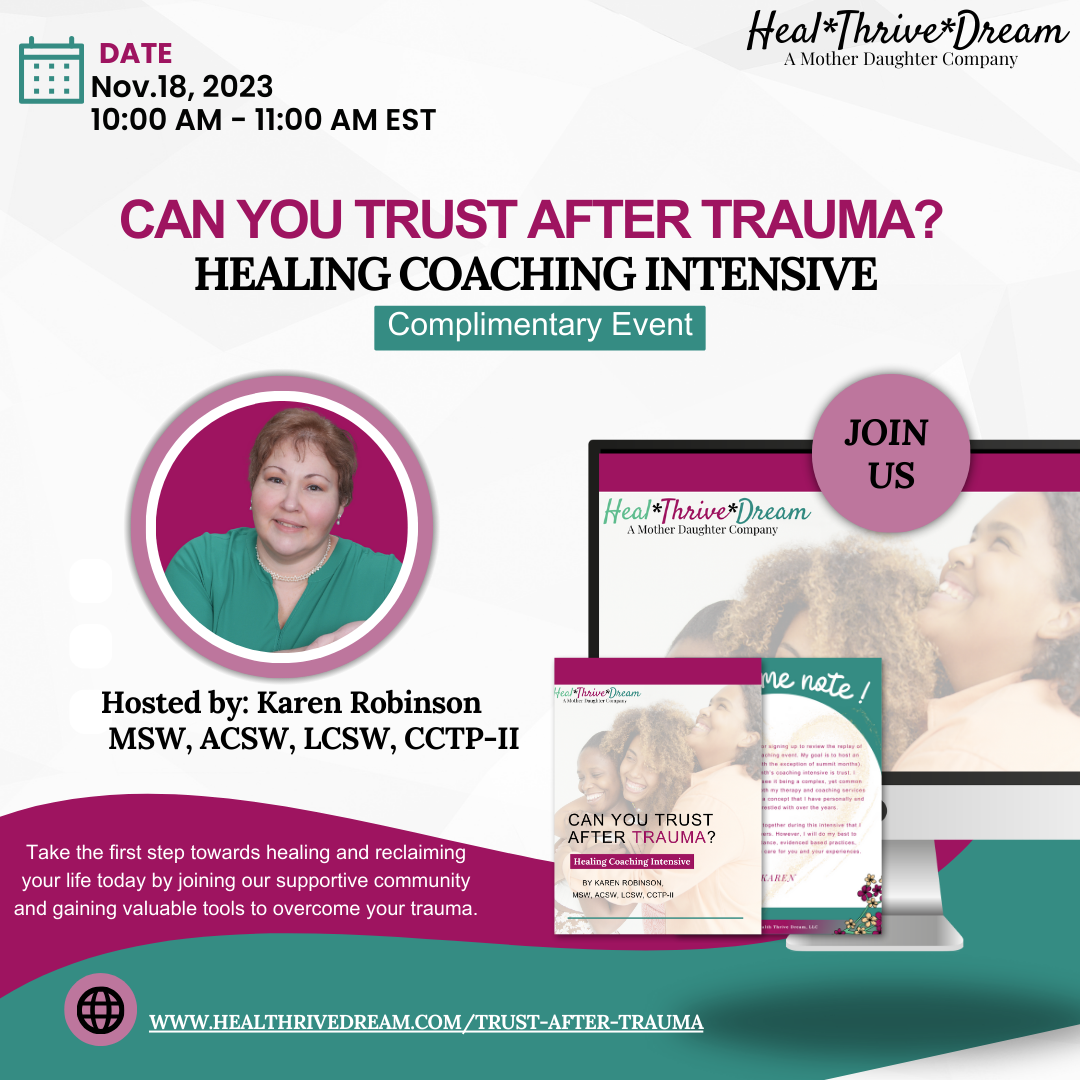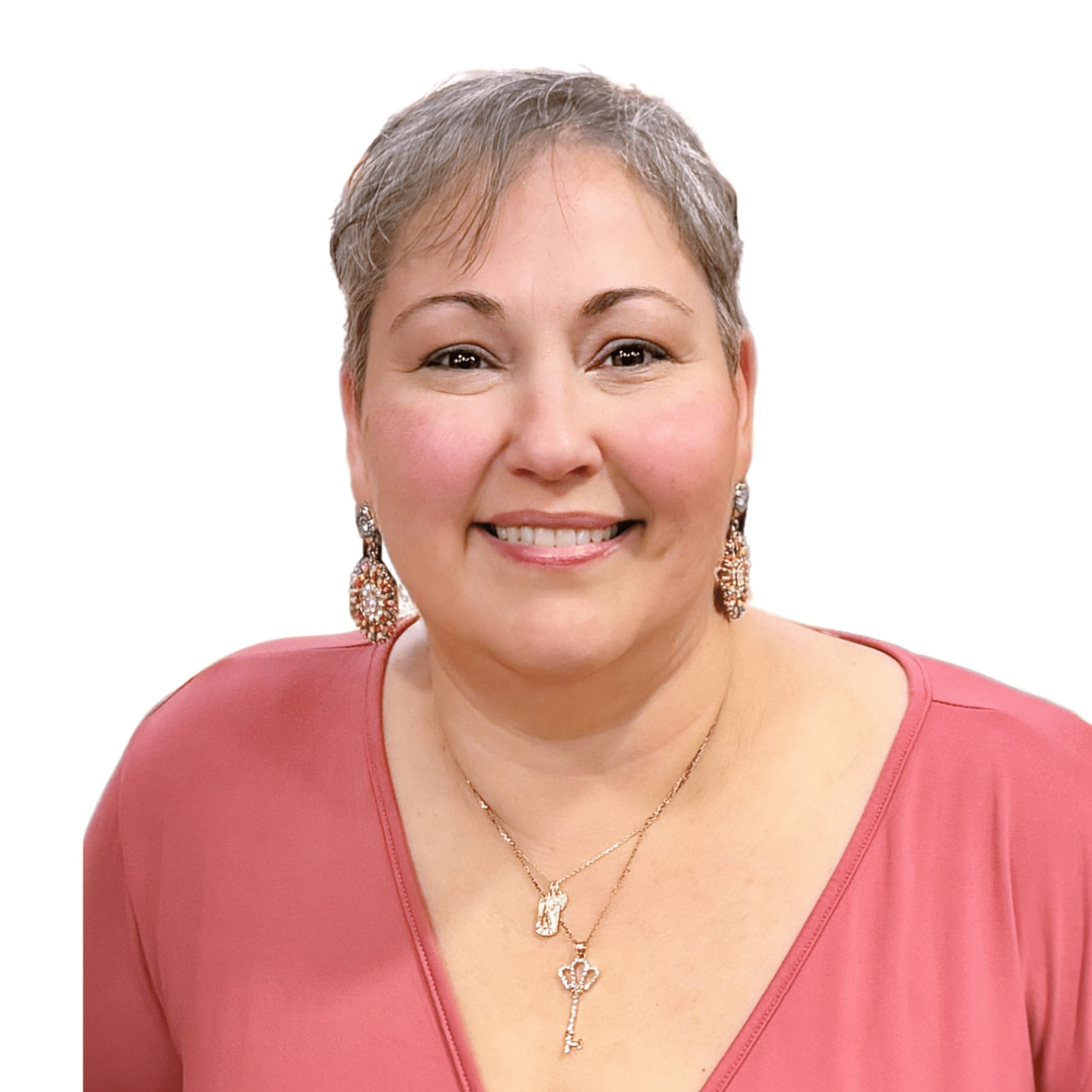Trust is the foundation of any healthy relationship. However, there may come a time when you find yourself unable to trust someone due to their actions or behavior. In this blog post, I will explore what to do when you can't trust someone that includes expressing your concerns, setting boundaries, evaluating your safety, and locating support as needed.

When you are questioning whether or not you can trust someone, it's essential to start with self-reflection. Acknowledge what you are feeling. Why do you think you feel a lack of trust and how is this affecting you? Give yourself permission to sit with your thoughts and emotions. If you do conclude your trust has been broken, open and honest communication is the best next step to take if safe to do so. Have a candid conversation with the person in question. Express your concerns and feelings calmly and respectfully. Use "I" statements to avoid blame. It is also crucial to establish clear boundaries. Define what is acceptable and what is not in the relationship. Ensure that both of you understand and agree to these boundaries. In some cases, trust issues may be deeply rooted or complex. If you think this is true for your situation, consider seeking the guidance of a therapist or counselor who specializes in relationship issues.
Not all breaches of trust are equal. Assess the severity of the situation. Is it a minor issue that can be resolved through communication and understanding, or is it a major breach that may require more significant changes or even ending the relationship? Pay attention to how the person responds to your concerns. Are they willing to listen, take responsibility for their actions, and work towards rebuilding trust? Their response is a significant factor in deciding how to proceed. If they seem not to care at all, remember that you deserve better. Lean on your support system. If you don’t have a solid support system, please ask your therapist, co-workers, family to assist you in building one. This is important in your healing as trust issues can be emotionally challenging. Surround yourself with a supportive network of friends and loved ones who can provide emotional support and guidance during this time.
Next, you will want to practice deep self-care. Take time to prioritize your well-being. Engage in activities that bring you joy and relaxation, whether it's exercise, meditation, or pursuing a hobby. You will also want to set realistic expectations for yourself, the other, and for your relationship.
Understand that rebuilding trust, if possible, takes time. It may not happen overnight. Be patient and realistic about the process and the outcomes you can expect.
Forgiveness can be a powerful, but not a easy tool in the healing process. However, it doesn't mean forgetting or condoning the actions that led to the breach of trust. Forgiveness is about releasing the negative emotions and moving forward. As you work through the trust issues, monitor the progress in the relationship. Are both parties making efforts to rebuild trust? Are there positive changes in behavior and communication? You may need to make a decision about the future of the relationship. If trust cannot be rebuilt, and the relationship continues to be harmful or toxic, it may be necessary to consider ending it for your own well-being.
I know ending a relationship is not easy. Sometimes we don’t have a choice. Sometimes, things will improve if the work is done. Remember you can’t do the work alone for the relationship, but you can do the work alone for YOU. Please register here now for the healing coaching intensive.

Complementary healing coaching intensive: Can you trust after trauma?
Also, please check out my other blog posts about trust: How to Determine Trustworthiness: A Simple Guide for Survivors


